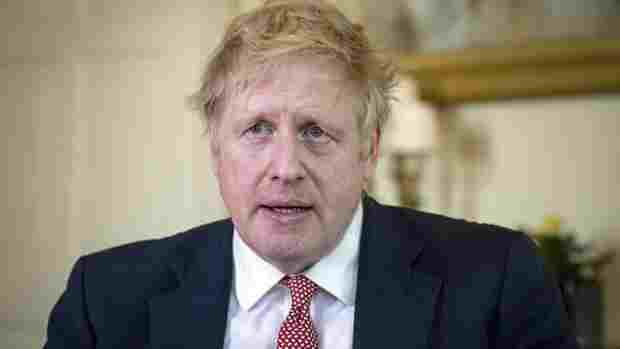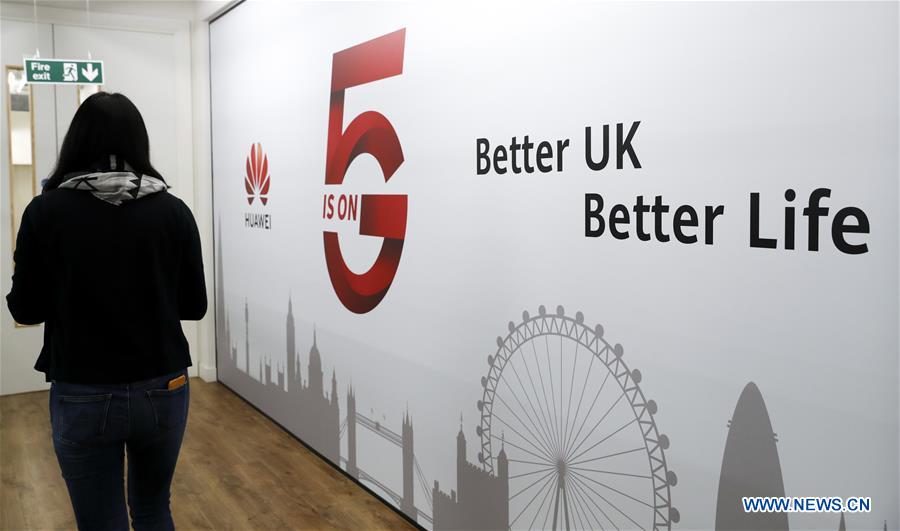
British Prime Minister Boris Johnson speaks at 10 Downing Street after being discharged from hospital on 12 April, 2020. /Xinhua
British Prime Minister Boris Johnson speaks at 10 Downing Street after being discharged from hospital on 12 April, 2020. /Xinhua
Editor's note: Jonathan Arnott is a former member of the European Parliament. The article reflects the author's opinions, and not necessarily the views of CGTN.
Convenient, lazy and often incorrect assumptions are the order of the day in the Western media at present. Is someone pro-Brexit? Then they must also be pro-Trump. Does someone believe in socialist economics? Then they must also follow a pro-Palestine, anti-Israel agenda. There's a temptation to split the world into two camps: every issue is seen as linked, with an identity politics mindset which presumes the existence of various alliances.
As someone who falls through those cracks most of the time, it's a constant source of frustration to me. I'm pro-Brexit, but anti-Trump (though frankly, I'm not keen on Biden either). Most of the other presumed alliances are often shaky. An out-and-out right-winger in the United Kingdom would tend to hold beliefs on crime and prisons which would be considered center or center-left in the United States. The United States has much lower population density than the United Kingdom: it's reasonable to be more pro-immigration in America yet feel that greater controls are needed in England. Someone might reasonably support the principle of equality from the Black Lives Matter campaign, yet reject the anti-Israel rhetoric or their "defund the police" objectives.
One of these stereotypes is the presumption that British Prime Minister Boris Johnson and U.S. President Donald Trump are two sides of the same coin. They are not. Before Trump was elected, Johnson described him as displaying "a stupefying ignorance that makes him unfit to be U.S. President." Now, as leaders of their respective countries, both men understand - at least on a transactional basis - that they need each other. The United States has, under Trump's leadership, found itself often isolated on the world stage and in need of allies.

A staff member walks past Huawei 5G Innovation and Experience Center in London, Britain, January 28, 2020. /Xinhua
A staff member walks past Huawei 5G Innovation and Experience Center in London, Britain, January 28, 2020. /Xinhua
The traditional "special relationship" between the United States and United Kingdom has been a necessary one for Donald Trump, taking the edge off pure perceptions of him as a protectionist. For the United Kingdom, all alliances need to translate into future trade agreements: it cannot demonstrate "added value" from Brexit until it signs major agreements with the world's leading nations.
Left-wingers in the United Kingdom wish to equate Boris Johnson with Donald Trump: they know that Donald Trump is substantially less popular with British voters than Boris Johnson. It is a form of guilt by association, one of the oldest tricks in the political book. Do not mistake spin for reality – pro-Brexit does not necessarily mean pro-Trump, and Boris Johnson is substantially more pro-China than much of his own Cabinet.
Yet whilst Boris Johnson has no desire to be anti-China, I believe there will always be three areas of tension between the United Kingdom government and China: Hong Kong, civil liberties and religious liberties.
With the Hong Kong Special Administrative Region, the differences are historical and a sense of loyalty. Differences on civil liberties are cultural, and as a traditionally Christian country which now has a substantial Muslim population, the UK is particularly keen on religious freedoms.
When it comes to security, Britain will tend to err on the side of caution: a government believing that there is a 95-percent chance (for example) that Huawei's involvement is safe might well act upon a perceived 5-percent chance that it is not, fearing the potential consequences as too bad to justify the risk.
Boris Johnson is an internationalist at heart. The Huawei decision does not sit comfortably with him: only last month, he told the House of Commons that "I am a Sinophile and I believe we must continue to work with this great and rising power."
China is the UK's sixth-largest export market and fourth-largest import market. The UK welcomes 120,000 Chinese students per year to its higher educational institutions. Boris Johnson does not, instinctively, want to follow Donald Trump – or to follow China. What he really wants, though, is looking more and more difficult to achieve in practice: a good working relationship with both China and the United States.
From increasing the national debt in the fight against COVID-19, to liberalizing immigration from Hong Kong, this is not a government which is limited by traditional stereotypes. I imagine Johnson's position as trying to retain good relations with China, the U.S., the European Union, and the rest of the world.
U.S. Secretary of State Mike Pompeo kicks off a two-day official visit on Monday to the UK, where he will meet Johnson and discuss issues on COVID-19, bilateral free trade agreement and of course China. The meeting will symbolize the growing conflict between the UK's "special relationship" with the U.S. and its "golden era" with China. Johnson is trying to stay in the center of a square, remaining cordial with all whilst not risking destroying relations with the others by siding with one. In trying to do that, he risks being pulled in all directions at once.
(If you want to contribute and have specific expertise, please contact us at opinions@cgtn.com.)